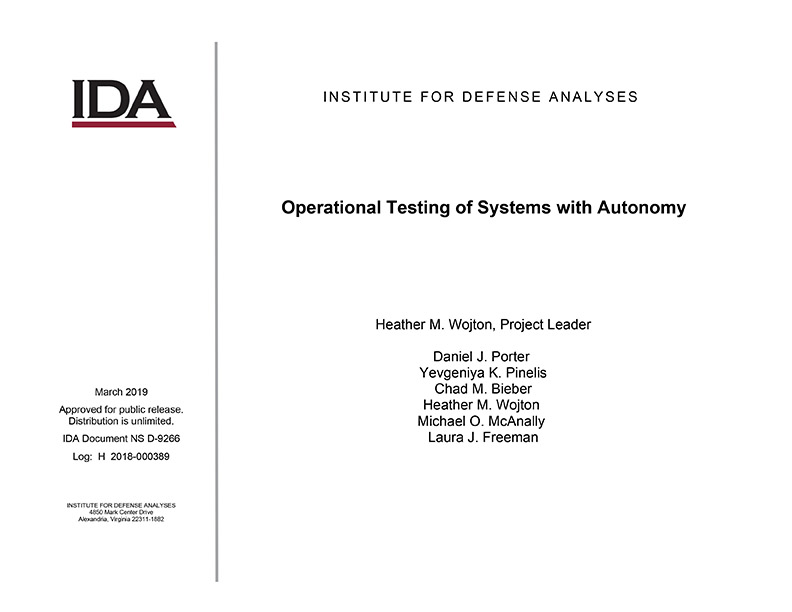Operational Testing of Systems with Autonomy
March, 2019
IDA document: D-9266
FFRDC: Systems and Analyses Center
Type: Documents
Division: Operational Evaluation Division
Authors:
IDA document: D-9266
FFRDC: Systems and Analyses Center
Type: Documents
Division: Operational Evaluation Division
Authors:
Authors
Heather M. Wojton, Daniel J. Porter, Yevgeniya K. Pinelis, Chad M. Bieber, Michael O. McAnally, Laura J. Freeman
See more authors

